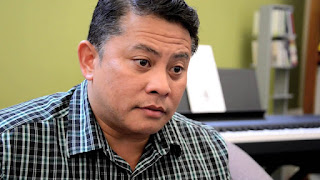Vocal Music
- Christ Has No Body Now but Yours – David Ogden (b. 1966)
Instrumental Music
- Aria – Flor Peeters (1903-1986)
- Prelude on “Michael” (hymn 665) – Charles Callahan (b. 1951)
- Voluntary on “Was Lebet” (Hymn 568) – Christopher Tambling (1964 - 2015)
Congregational Music (all hymns from The Hymnal 1982 with the exception of those marked “R” which are from Renew.)
- Hymn 423 - Immortal, invisible, God only wise (ST. DENIO)
- Hymn 598 - Lord Christ, when first thou cam’st to earth (MIT FREUDEN ZART)
- Hymn - From North and South (LASST UNS ERFREUEN)
- Hymn 321- My God, thy table now is spread (ROCKINGHAM)
- Hymn 477 - All praise to thee, for thou, O King divine (ENGLEBERG)
- Psalm 112 – Tone IIa
Christ Has No Body Now But Yours
Christ has no body but yours,No hands, no feet on earth but yours,Yours are the eyes with which he looksCompassion on this world,Yours are the feet with which he walks to do good,Yours are the hands, with which he blesses all the world.Yours are the hands, yours are the feet,Yours are the eyes, you are his body.Christ has no body now but yours,No hands, no feet on earth but yours,Yours are the eyes with which he lookscompassion on this world.Christ has no body now on earth but yours.
One of the things that most fascinates me the most is that he was the Religious Music Adviser for the PBS series Call The Midwife. It is one of my most favorite shows, and I always admired how the sacred music employed on the show fit the storyline so well.
Aria
Flor Peeters was a Belgian composer, organist and academic teacher. He was director of the Conservatorium in Antwerp, Belgium, He retired in 1968 and was given the assignment of an International Masterclass in the cathedral of Mechelen by the Ministry of Flemish Culture. He fulfilled this task until his death. He was organist at Mechelen Cathedral from 1923 to his death in 1986. Each Sunday after High Mass, between 1968 and 1986, he performed a short recital for friends and tourists. He kept his large repertoire in good condition and this playing was a necessity for him as a mean of communicating beauty to others.Flor Peeters was made doctor honoris causa in music by the Catholic University in Washington (1962) and by the Catholic University of Louvain (1971).Also in 1971 King Baudouin of the Belgians gave him the title of baron. A few weeks before his death he received the State Award for an artistic career from the Belgian Government.
Prelude on "Michael" and Voluntary on "Was Lebet"
Two of the hymns that were appropriate for the scripture readings this Sunday but remain unfamiliar to our congregation are hymns 665 (All our hope on God is founded, sung to the tune MICHAEL) and 568 (Father all loving, who rulest in majesty, sung to the German chorale WAS LEBET.) The text for hymn 665 is a translation of a German hymn from the 17th cenutry, but set to a tune from the 20th century. The text for 568 is a contemporary text from the 20th century but set to a German tune from the 18th century.






